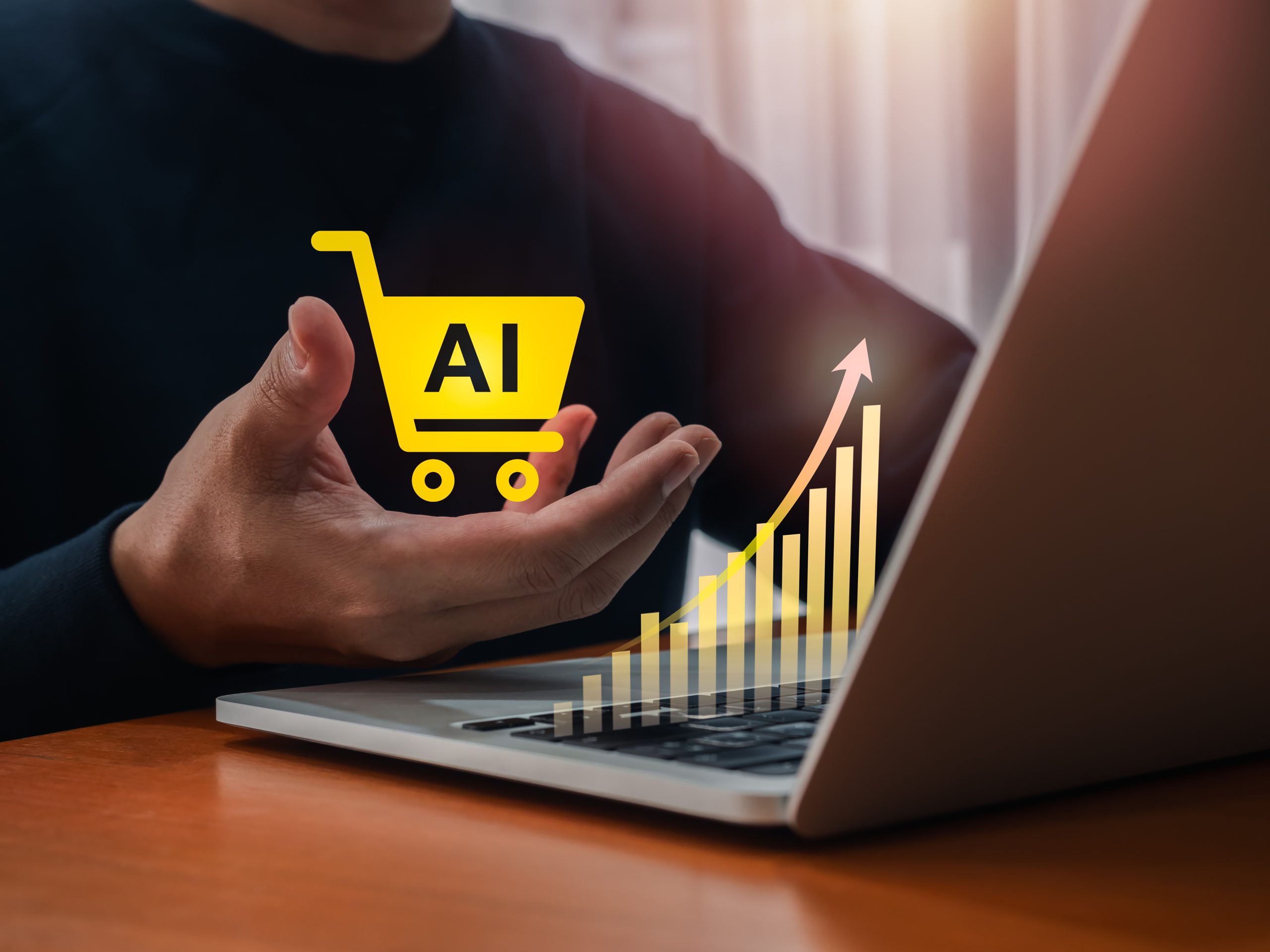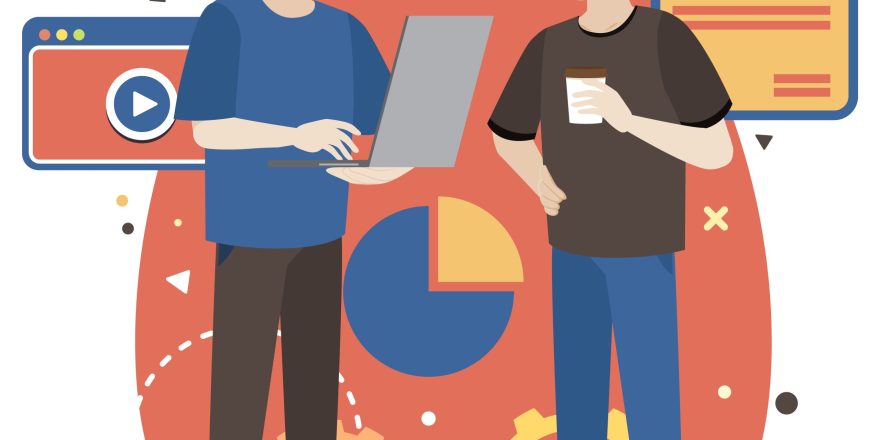Introduction
Performance marketing is rapidly evolving, with advancements in artificial intelligence (AI) playing a significant role in how businesses approach digital campaigns. Traditionally, performance marketing focused on clear metrics like clicks, conversions, and ROI. However, AI is now transforming this landscape by automating decision-making, predicting consumer behavior, and providing more refined targeting capabilities. In this blog, we will explore the interplay between human creativity and machine learning in performance marketing, discussing how businesses can leverage both to achieve optimal results.
1. What Is Performance Marketing?
Performance marketing is a form of digital advertising where advertisers pay only for measurable actions, such as clicks, leads, sales, or conversions. This model focuses on results rather than impressions, making it a cost-effective way to drive ROI.
Common Types of Performance Marketing:
- Affiliate Marketing: Brands pay affiliates based on the number of leads or sales generated.
- Cost Per Acquisition (CPA): Advertisers pay when a specific action, such as a sale or form submission, occurs.
- Cost Per Click (CPC): Advertisers pay for each click on an ad.
- Cost Per Lead (CPL): Advertisers pay when a user submits a lead form.
The key to successful performance marketing is tracking and measuring these actions, ensuring that the business only pays for real results.
2. AI’s Role in Performance Marketing
Artificial intelligence is dramatically changing the way performance marketing is approached. AI can process vast amounts of data in real-time, making it invaluable for optimizing campaigns, predicting customer behavior, and automating key aspects of the marketing process.
Key Ways AI Enhances Performance Marketing:
- Automated Campaign Optimization: AI algorithms analyze data and automatically adjust bids, targeting, and messaging to maximize performance.
- Predictive Analytics: By analyzing historical data, AI can predict which customers are most likely to convert, allowing businesses to allocate resources more efficiently.
- Personalization: AI helps deliver personalized content to users based on their behavior and preferences, increasing engagement and conversion rates.
- Fraud Detection: Machine learning algorithms can identify patterns of fraud and prevent false leads, ensuring advertisers only pay for genuine actions.
With AI handling the heavy lifting of data analysis and automation, marketers can focus on refining their strategies and creativity.
3. The Power of Human Creativity in Performance Marketing
While AI is a powerful tool, human creativity is still an essential element of successful performance marketing campaigns. AI can analyze data, but it takes a creative human touch to craft compelling ad copy, build engaging landing pages, and come up with innovative marketing strategies.
Why Creativity Still Matters:
- Brand Voice: AI can’t replicate the nuances of a brand’s personality or tone. Human creativity ensures that your marketing materials reflect your brand’s unique voice and appeal to your target audience.
- Emotional Connection: While AI can personalize ads based on data, it takes a human to understand the emotional triggers that resonate with consumers. Creativity can inspire and engage in ways that AI alone cannot.
- Strategic Vision: AI provides insights, but it’s up to humans to make strategic decisions based on those insights. Creative marketers can use data to craft campaigns that align with broader business goals.
Ultimately, the combination of AI’s data-driven power and human creativity is what makes performance marketing successful.

4. Combining AI and Creativity for Maximum Impact
The key to succeeding in performance marketing today is finding the right balance between AI’s capabilities and human creativity. By leveraging both, businesses can optimize their campaigns and achieve better results.
Best Practices for Combining AI and Creativity:
- Data-Driven Creativity: Use AI insights to inform creative decisions, such as which messaging resonates most with your audience or which visuals drive conversions.
- Creative Testing: AI can help you conduct A/B testing to determine which creative elements perform best, allowing you to refine your campaigns for maximum impact.
- Dynamic Personalization: Let AI drive real-time personalization, but ensure that the content aligns with your brand’s creative direction.
- Optimized Resource Allocation: AI can help identify which channels, keywords, and audiences are most effective, allowing marketers to allocate resources creatively toward high-performing areas.
By integrating AI into the creative process, businesses can craft highly optimized, personalized, and engaging marketing campaigns that deliver measurable results.
5. Challenges of AI and Creativity in Performance Marketing
While the synergy between AI and human creativity is powerful, it’s not without challenges. The integration of AI into marketing strategies requires careful planning, a clear understanding of both the technology and the creative aspects, and constant monitoring to ensure success.
Challenges to Consider:
- Data Overload: AI’s ability to process large amounts of data can be overwhelming. Marketers must focus on the most relevant insights and avoid getting lost in the noise.
- Creative Fatigue: Relying too heavily on data-driven decisions may lead to a lack of innovation or creativity in campaigns. It’s important to maintain a balance.
- Technology Limitations: While AI can automate many aspects of marketing, it is not infallible. Marketers need to be aware of potential biases in algorithms and ensure that campaigns are still aligned with brand values.
- Cost: Implementing AI tools can be expensive, especially for smaller businesses. Companies must evaluate the cost-benefit ratio before diving into AI-powered solutions.
Despite these challenges, the potential for AI and creativity to revolutionize performance marketing is immense, and businesses that strike the right balance can see significant improvements in campaign performance.
Conclusion
In the age of AI, performance marketing has evolved beyond traditional tactics, integrating machine learning with human creativity to produce more effective, data-driven campaigns. AI’s ability to automate and optimize, paired with human creativity’s ability to connect with customers emotionally, is creating a powerful synergy that drives better results. By embracing both AI and human creativity, marketers can push the boundaries of performance marketing and achieve higher engagement, conversions, and ROI.





